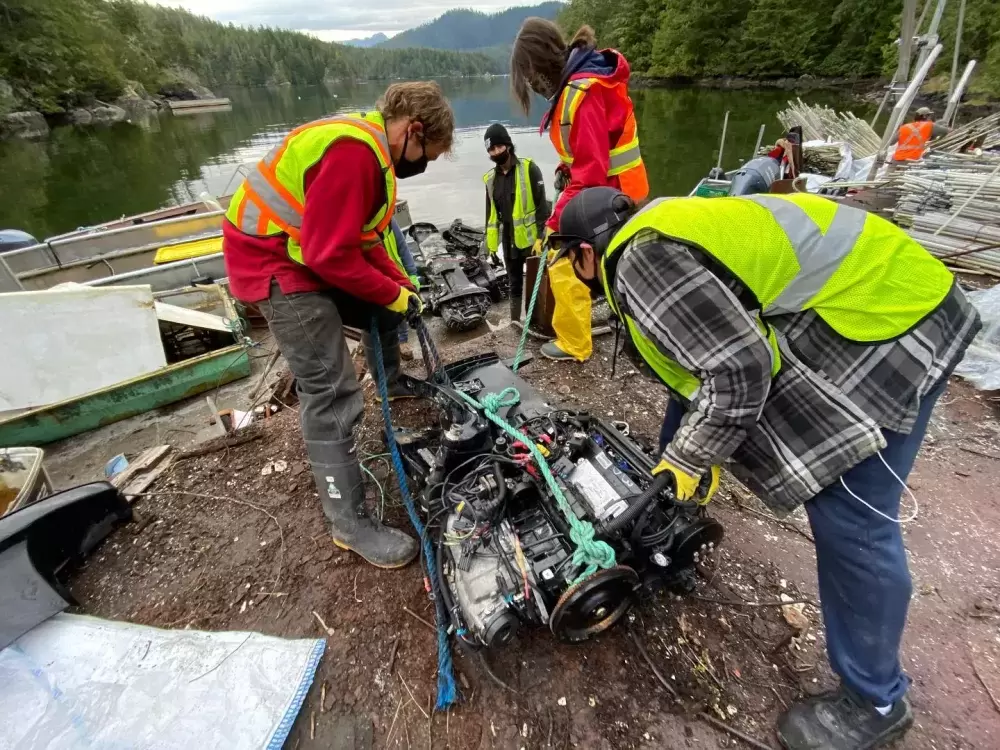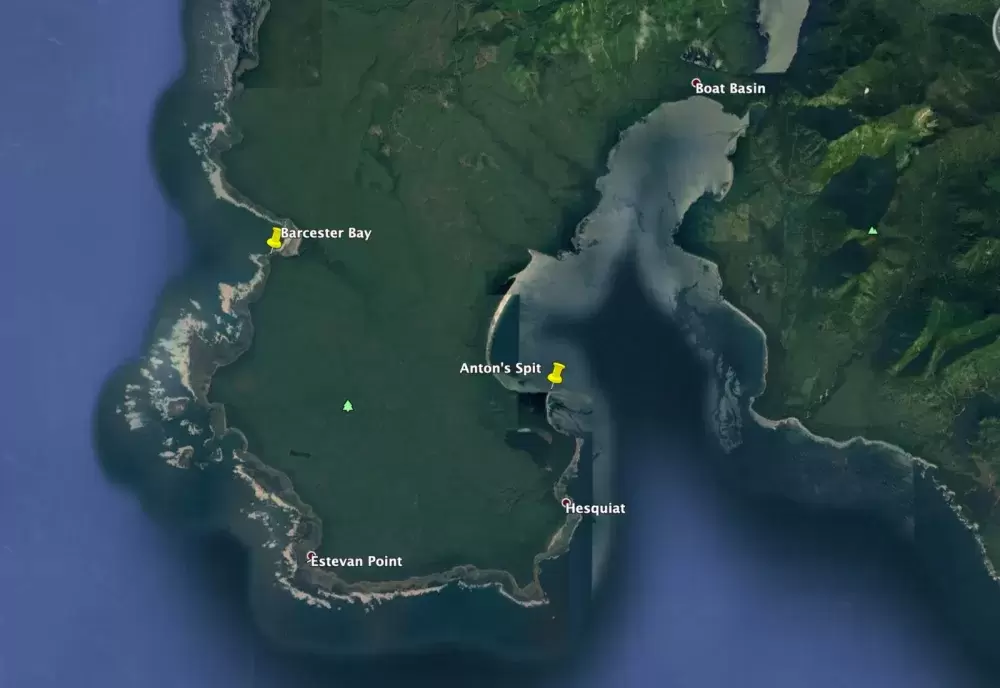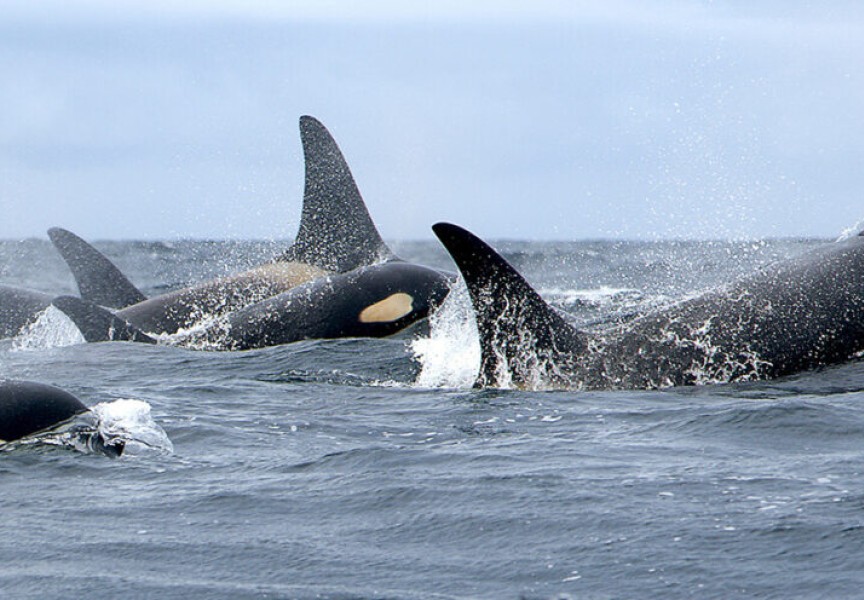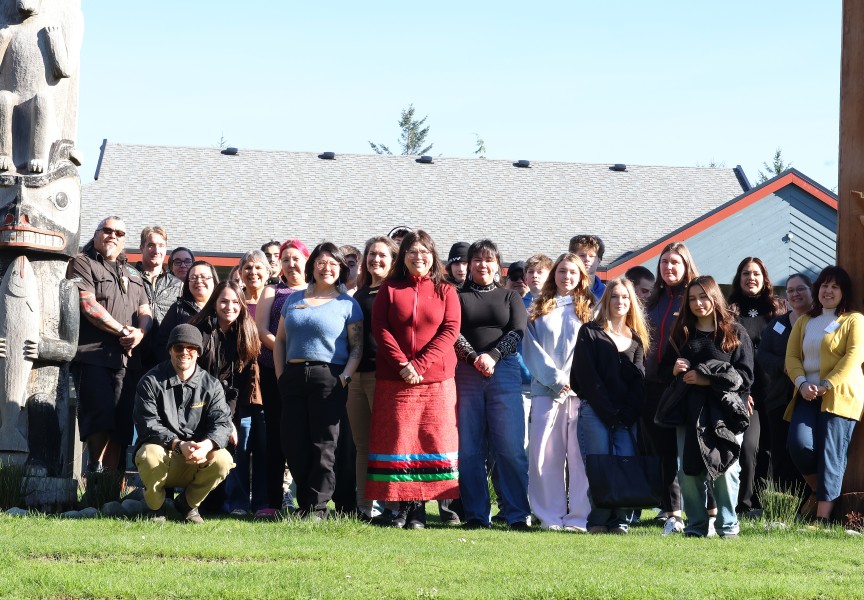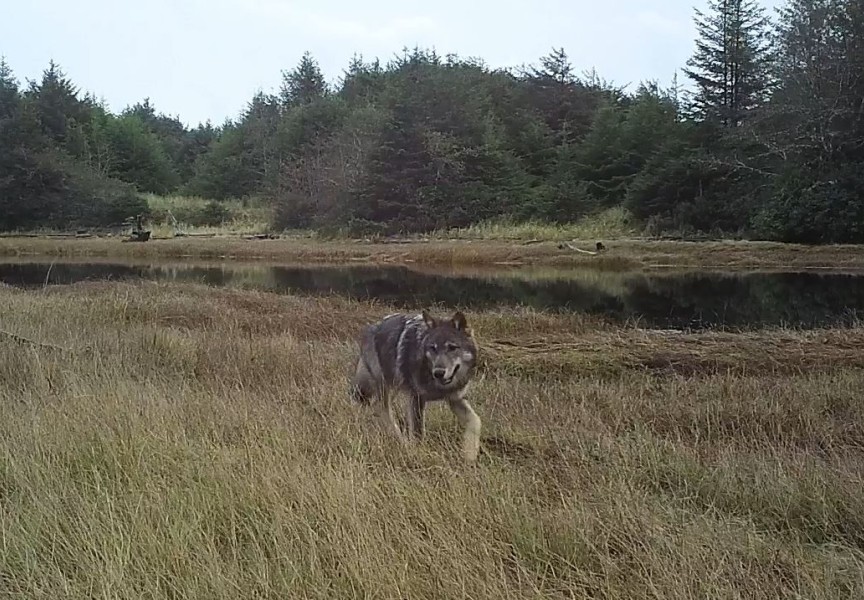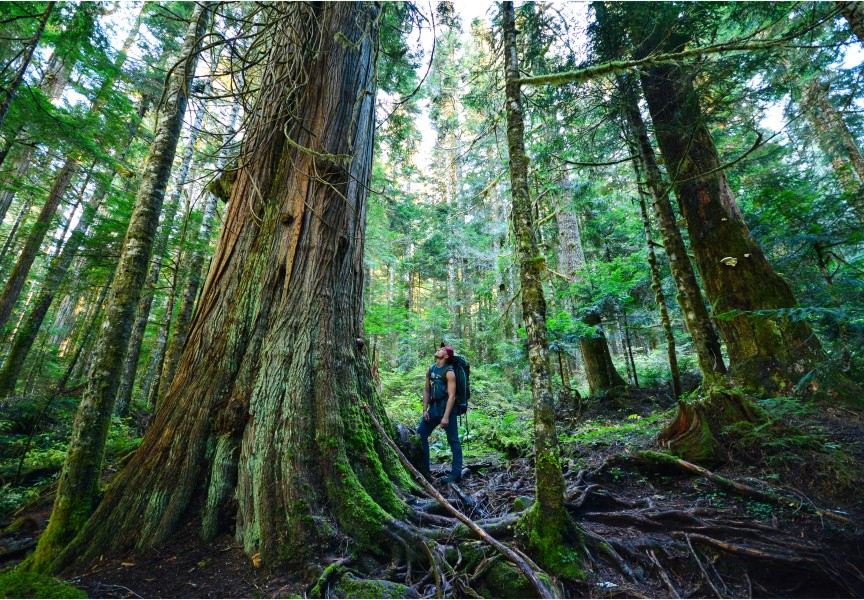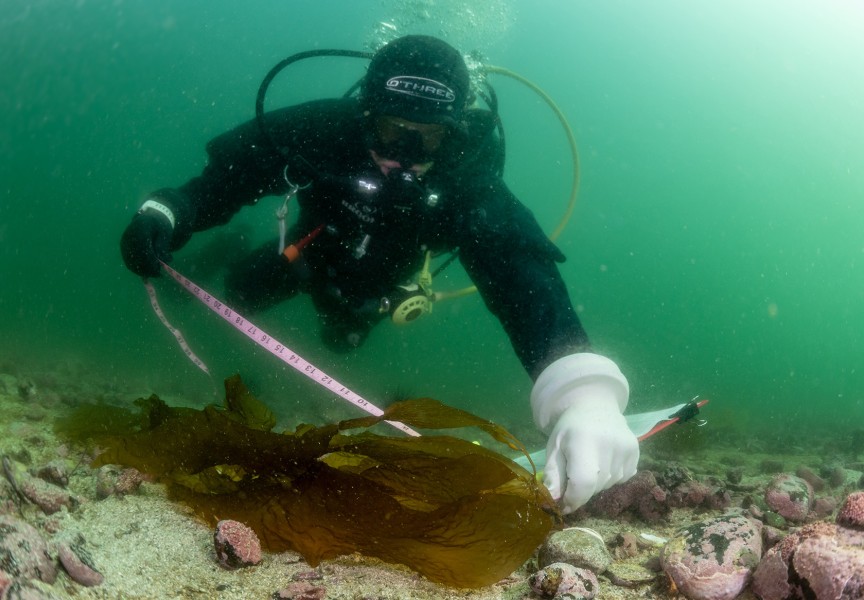A massive effort to clear shorelines of debris and remove derelict vessels is expected to create 300 short-term jobs on the Island’s west coast over the next six months.
B.C.’s Clean Coast, Clean Water Initiative (CCCWI), announced last week, allocates $2.2 million to coastal improvement projects in the territories of Tla-o-qui-aht, Hesquiaht, Ahousaht, Tseshaht and Ucluelet First Nations.
Cleanup operations between May and October span most of the Island’s west coast — roughly 280 kilometres of shoreline — from Sooke to Kyuquot, said Capt. Josh Temple of Tofino-based Coastal Restoration Society (CRS).
“For our project on the west coast of Vancouver Island, we’ll see 300 jobs created for First Nations companies, individuals and contractors in communities up and down the coast,” Temple said.
The project is part of a larger, $9.5-million B.C. coast initiative to address environmental degradation caused by ocean-borne debris. As project lead, CRS administers funds to T’sou-ke First Nation and three non-governmental organizations specialized in marine cleanup: Surfrider Pacific Rim, Rugged Coast and Ocean Legacy. Eleven First Nations in all are partners and collaborators in the operation.
All nine derelict vessels to be removed in the operation are located in Ucluelet Inlet. That’s a small proportion of the total, as many as 100, slated for cleanup this year on the Island’s west coast, Temple said.
“We look forward to working with the Coastal Restoration Society and Surfrider for the partnered removal of marine debris and providing environmental opportunities for the citizens of Yuułuʔiłʔatḥ, and for our neighbouring nations,” said Charles McCarthy, Ucluelet First Nation president. “The marine ecosystem is a vital source for our culture, sustains our livelihood, and home.”
Temple, critical in the past of federal and provincial governments for leaving the burden of west coast cleanup to local volunteers and private donors, was elated to see major funding.
“It’s like a breath of fresh air, really, especially for those of us who have been working in this space for years, raising money from private individuals,” he said.
Local volunteers, companies and First Nations have been the front-line force, providing funds, equipment and labour for badly needed marine cleanup on Vancouver Island’s west coast.
CCCWI signals a sea change, one that Temple believes will beneficial in the long run.
“It is setting a precedent,” he said. “It’s the largest marine cleanup in history of the planet, something that others will look to. It will be a catalyst for global change in the way we approach this issue internationally. If they all step up, then we have a real shot at getting ahead of this.”
Data obtained in the course of the cleanup provide an extensive record of ocean debris, enabling a better understanding of the problem. Information will prove to be instrumental in planning and navigating for future initiatives, Temple said.
Hesquiaht Chief Counsellor Joshua Charleson welcomes the initiative but believes that only secure and sustainable funding will adequately deal with the issue long-term.
“It’s always been quite serious in our area,” the chief councillor said. “It’s something that’s ongoing and needs to be addressed year after year,” he said. “It coats almost our entire territory in ocean debris that comes from all over the world.”
Only an international agreement between all coastal nations would be enough to control the volume of waste entering the ocean, Charleson said.
Hesquiaht First Nation will work directly with Rugged Coast and Surf Rider on shoreline cleanup between Anton Spit and Barcester Bay. Over a two-week period, a crew of 10 from HFN will augment a 10-member crew with Rugged Coast. They expect to recover an estimated 30 tonnes of debris in that area alone.
“That seems to be the tip of the iceberg as they will see when they start moving around logs and find all the microplastics there,” Charleson said.
Hesquiaht undertook a similar project a few years ago focussed mostly on the Hesquiaht Harbour side of the peninsula, he noted. Another pressing environmental concern is ghost gear, derelict fish nets and equipment that continues to entangle fish, birds and mammals, including a group of 100 grey whales that pass through Hesquiaht waters, he said.
The jobs, though temporary, are also welcome, helping to fill a gap left by a decline in resource-based activity.
“It will be a huge boost for families up in Hot Springs Cove,” Charleson said.
The NDP government, which was critical of the former Liberal government for not adequately funding marine cleanup, held public consultations with coastal communities two years ago. Key concerns included abandoned vessels, mooring buoys, polystyrene foam, aquaculture debris and single-use plastics. CCCWI is the result, intended to cover 1,200 kilometres of coastline, including removal of 100 wrecks, while creating hundreds of jobs in partnership with coastal First Nations.
The initiative is part of the CleanBC Plastics Action Plan, which has so far removed 127 tonnes of shoreline debris, and the $10-billion COVID response and recovery plan.
COVID restrictions hindered cleanup efforts last spring on the west coast, Temple said.
“The good thing is we have an incredible team and we’re very grateful for the support we’ve received from the host nations and others,” he said
A sector that once operated solely in a volunteer sphere is evolving into a bona fide profession, providing employment to people in rural and remote communities with few other job opportunities, he said. He also feels a better equipped marine cleanup industry could provide a meaningful chance of restoring wild salmon.
“It’s really huge,” Temple said. “We are setting the bar higher. There is no one in the world with an operation of this scale and that’s the global aspect. The local aspect is that this is going to be a real lifeline since tourism, fishing and forestry sectors are struggling.”
He predicted federal ghost gear funding will also be confirmed in coming weeks.

